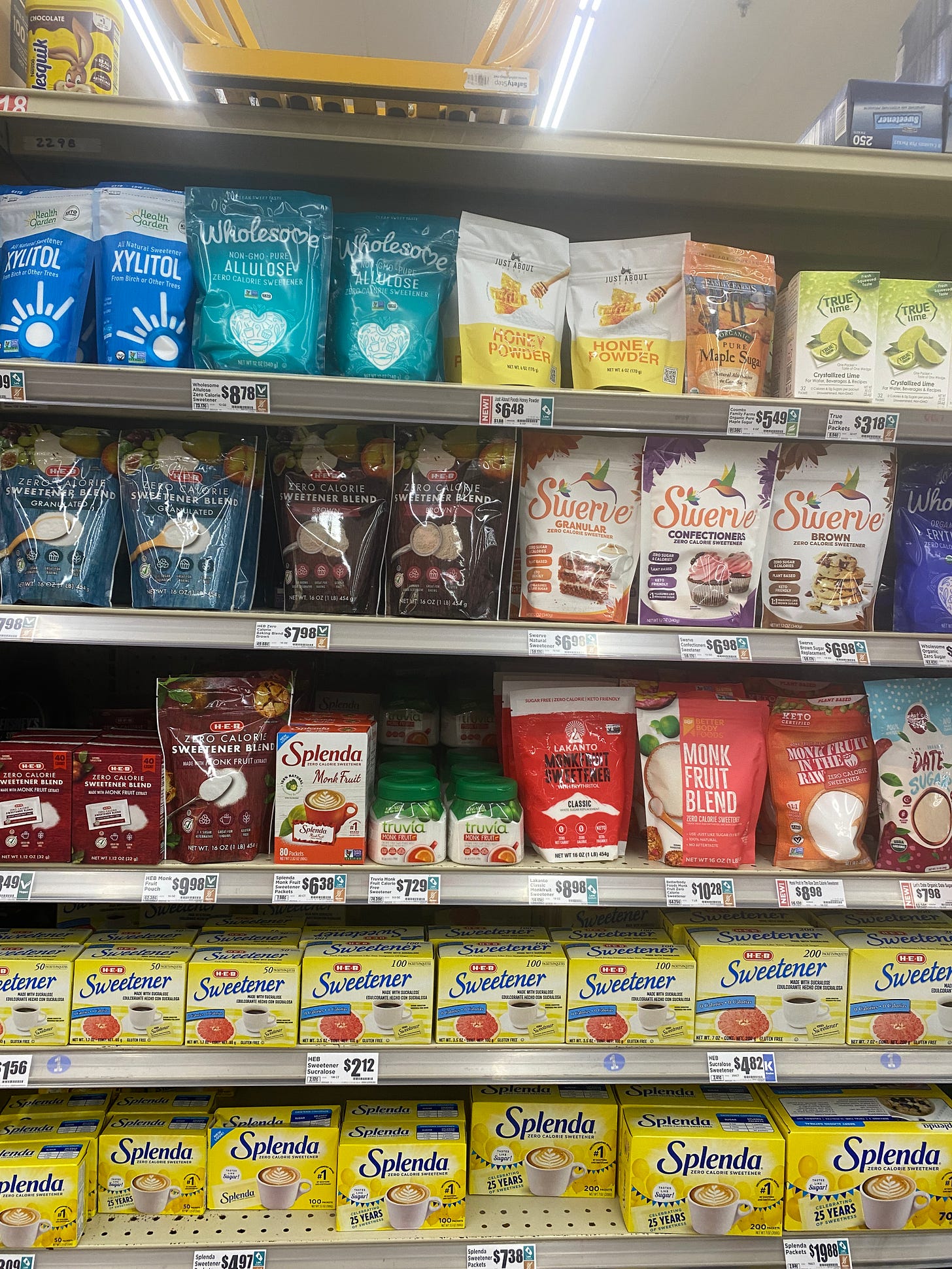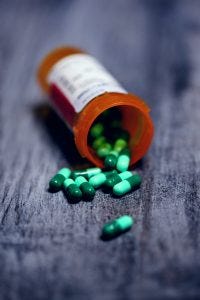Why is there so much confusion about sugar and sweeteners? It doesn't make sense when you think about it. Raw sugar is what all animals eat, and they get it in raw foods, so why all the confusion and choices for us?
The best answer is because sugar is big business and we've been sold more and more refined sugar and artificial sweeteners in processed - and convenient - products. Sugar and artificial sweeteners are even put in medications, unnecessarily, I might add.
Sweetness is addictive, and marketers have taken advantage of that. Today, there are so many different sweeteners on the market, and few know which ones are healthy and which ones can damage your health.
This sweetener industry isn't going away anytime soon, and most mainstream information about the health dangers caused by the artificial sweetener industry is silent. Most of the artificial sweetener experts are dying off, and book publishers are still afraid of going against the powerful artifical sweetener industry.
I will continue to publish articles informing you about the many various sweetener choices out there, so stay tuned. I expose the harmful effects from aspartame in my book Sweet Poison. I write in my book Splenda®: Is It Safe Or Not? about the safety of saccharin, what sugar alcohols are and why they aren't your best choice, and the untold history of stevia.
I've been doing this for over 30 years and my websites need some updating, but the data I have uncovered is timeless.
For now, here's a short rundown with links to more of my articles about some of the most popular sweeteners out there, especially those used in gum.
Healthy Or Not?

Erythritol - no; it's an isolated sugar alcohol that will give you painful gas and cramping. It's commonly found in gum, and is being used more and more these days.
Allulose - nope; it's just another form of aspartame, and you know by now that I have proven aspartame to be very toxic to your health.
Sucralose - never, unless you drink chlorine on a regular basis.
Turbinato - yes; this is simply raw, unprocessed cane sugar that's even healthier for a diabetic to use.
Saccharin - yes; despite the propaganda, saccharin never caused cancer and was labeled a carcinogen for political and profitable reasons.
Sugar Alcohols
Sugar alcohols are a good example - they are being used more and more these days, but they have side effects that can send you to the doctor and filling more prescriptions.
Sugar alcohols are found in fruits and vegetables, but they are neither sugar nor alcohol. Part of their chemical structure resembles sugar and part is similar to alcohol - hence, sugar alcohol. So to complicate matters more, these sweeteners are neither naural sugars nor alcohols.
And when processed in the lab, packaged in the warehouse, and shipped to the market for you to buy, they no longer resemble the natural sugar found in the unprocessed foods they were extracted from.
This is why sugar alcohols fall into a "grey area" in the sweetener arena because they are actually carbohydrates (starches) more than they are sugars. They are typically used cup-for-cup in the same amount as refined sugar, but they each vary in sweetness, ranging from half as sweet to as sweet as sugar.
So, this makes them if-y in my book, and whether they are right for you depends upon your individual circumstances. But, you'll discover that they do cause stomach issues, like IBS.
So, which granulated sugar do you buy off the grocery shelf? Stay tuned and I'll teach you about all of these sweeteners so you can decide for yourself.
_______________
If you want to learn more about healthy living and disease prevention, contact me at janethull.com. Remember that you are never alone when you are looking for good health!
I look forward to supporting you on your journey to alternative health and wellness.
_____________
Disclaimer: This article is for informational purposes only, and is educational in nature. The FDA may not have evaluated some of the statements. This article is not intended to diagnose, treat, cure, or prevent any disease. Please discuss with your own, qualified health care provider before adding supplements or making any changes to your dietary program.
Before taking vitamins, consult your doctor; pre-existing medical conditions or medications you are taking can affect how your body responds to multivitamins.
You have our permission to reprint this article if you attribute us with a live back-link to this article and the youtube links.
http://www.janethull.com/





Do you use raw unprocessed sugar, or processed?
Sugar